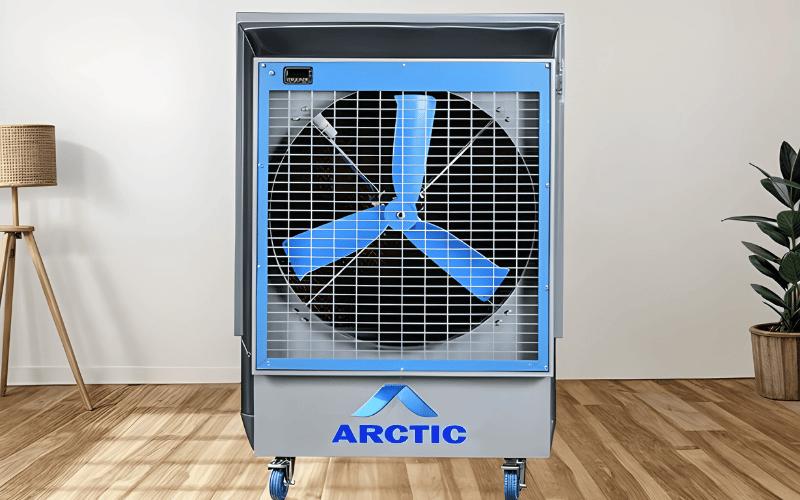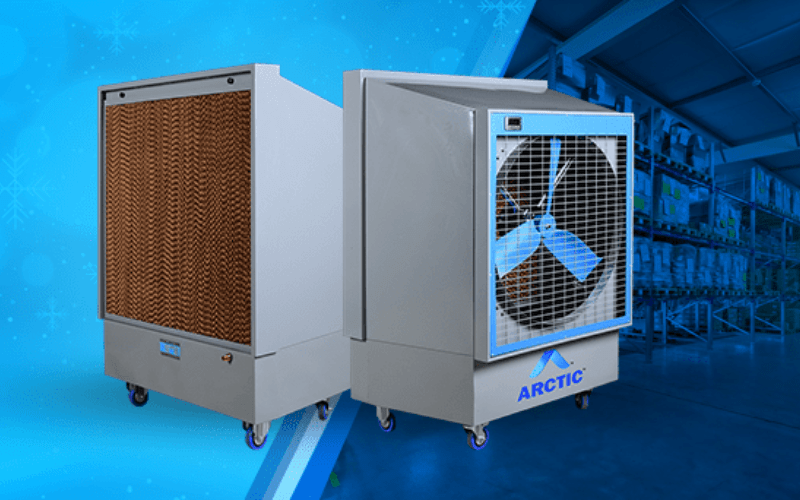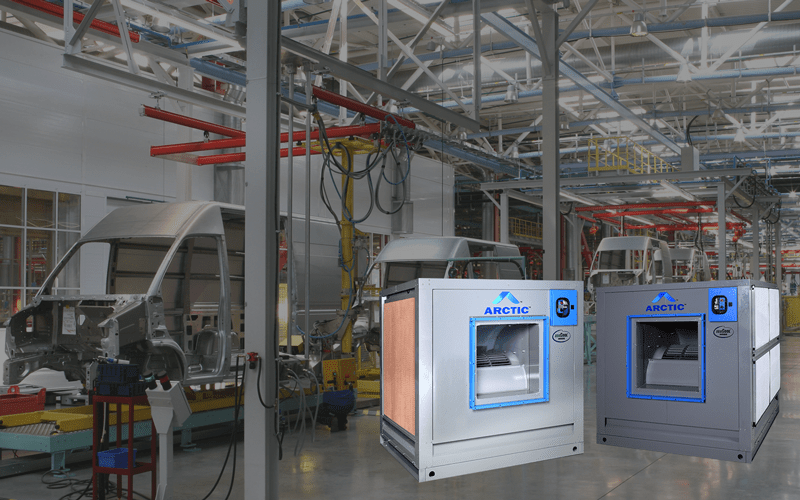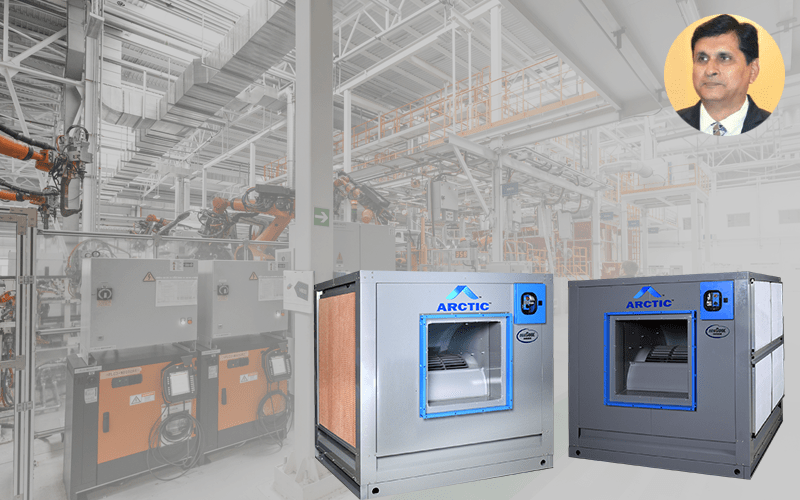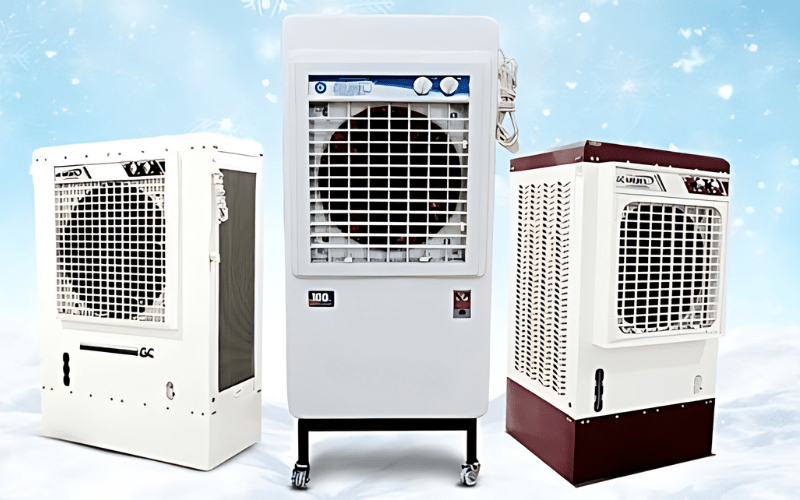Discussions about the best cooling technology frequently involve comparing coolers with metal bodies to those with plastic bodies. This subject has generated significant attention and discussion, engaging both consumers and industry specialists. Each kind of cooler presents its own set of strengths and weaknesses, making it crucial to evaluate which is more appropriate depending on particular usage requirements and environmental considerations.
Metal vs. Plastic Body Coolers in Large Spaces: A Detailed Analysis
In the context of cooling larger areas, the choice between metal and plastic coolers becomes particularly significant. Each material offers distinct benefits, but which one truly excels in larger environments? Let’s explore this in detail.
Durability and Lifespan
Metal Coolers: Known for their strength, metal coolers typically boast a longer lifespan. They are resistant to various forms of damage, making them ideal for areas with high traffic or exposure to harsh conditions. Additionally, metal maintains its appearance over time, resisting fading and discoloration.
Plastic Coolers: Although they don’t match the robustness of metal, contemporary plastic coolers are built for durability. Nonetheless, they tend to display signs of wear sooner, especially under direct sun exposure or in conditions of extreme heat or cold.
Maintenance and Ease of Cleaning
Metal Coolers: These coolers may require more attention in terms of maintenance. They can be prone to rust in humid conditions, necessitating regular cleaning and occasional polishing to maintain their appearance.
Plastic Coolers: Plastic coolers are generally easier to maintain. They do not rust, and their cleaning process is straightforward. However, they can stain or become discolored if not cleaned regularly.
Aesthetics and Design Flexibility
Metal Coolers: Metal coolers offer a sleek, contemporary look that is often preferred for its ability to blend with various interior designs, adding a touch of professionalism or sophistication.
Plastic Coolers: These coolers are available in a wide range of shapes, sizes, and colors, offering greater versatility in design and allowing for more personalization according to individual or business preferences.
Environmental Considerations
Metal Coolers: As a recyclable material, metal is an environmentally friendly option. When a metal cooler is no longer usable, it can undergo recycling by being melted down, thereby minimizing waste.
Plastic Coolers: It’s important to note that not every type of plastic can be recycled, and even the recyclable varieties might lose quality with repeated recycling. Moreover, the lengthy decomposition process of plastics poses a significant challenge to environmental sustainability.
Cost Factors
Metal Coolers: Typically more expensive initially, metal coolers may offer better long-term value due to their durability.
Plastic Coolers: These are generally more budget-friendly at the outset but may require more frequent replacements compared to metal coolers.
In-Depth Look at the Environmental Impact of Metal vs. Plastic Body Coolers
For those concerned about the environment, it’s crucial to understand the ecological implications of both metal and plastic coolers.
Raw Material Extraction
Metal Coolers: The production of metal involves mining iron ore, coal, and limestone, which can lead to water pollution and habitat destruction.
Plastic Coolers: Plastic is derived from petroleum, the extraction of which poses environmental risks, including oil spills. Unlike metal, not all plastics are recyclable, and recycling can reduce their quality.
Manufacturing Processes
Metal Coolers: Metal production is associated with significant greenhouse gas emissions, although technological advancements have reduced these emissions. Recycling metal is also more energy-efficient than producing it from raw materials.
Plastic Coolers: The production of plastic also releases greenhouse gases but typically less than metal production. However, some plastics can release harmful chemicals into the environment.
Durability and Longevity
Metal Coolers: Renowned for their durability, metal coolers have a long lifespan, which means they don’t need to be replaced often. This contributes to a reduced environmental footprint over time.
Plastic Coolers: Although some premium plastic coolers offer good durability, they typically don’t have the longevity of metal coolers, resulting in more frequent replacements and consequently more waste.
End-of-Life Factors
Metal Coolers: Thanks to metal’s excellent recyclability, metal coolers can be effectively melted and repurposed, maintaining high quality with minimal deterioration.
Plastic Coolers: The ability to recycle plastic coolers differs widely. Those that aren’t recyclable may persist for hundreds of years in landfills, posing environmental challenges. Even recyclable plastics have a limited recycling lifespan.
Making the Right Choice: Metal or Plastic
When considering environmental impact, both metal and plastic have their pros and cons. Metal is durable and recyclable but energy-intensive in production. Plastic has a lighter manufacturing footprint but poses end-of-life challenges.
The ideal choice may depend on the intended duration of use and local recycling facilities. Making environmentally responsible decisions begins with being informed, so consider these factors when shopping for a cooler.
Personalized Cooling Solutions with Yes Arctic
At Yes Arctic, we specialize in delivering exceptional cooling solutions that are customized to meet the unique requirements of each customer. Our commitment to quality and customer satisfaction drives us to offer a wide array of cooling products, each meticulously designed to cater to specific needs across various applications and environments.
One of our standout offerings includes an extensive selection of evaporative coolers. In arid environments, these coolers excel by utilizing the natural mechanism of water evaporation for effective and environmentally sustainable cooling. Our evaporative coolers stand out for their energy efficiency and eco-friendliness, making them an excellent option for individuals mindful of their energy use and environmental footprint.
Our range of coolers is especially suited for industrial and commercial settings, where managing large spaces efficiently is crucial. At Yes Arctic, we understand the challenges of cooling larger areas and have tailored our products to ensure optimal performance in such environments. Whether you are looking to maintain a comfortable climate in a warehouse, office, or any large commercial space, our coolers are designed to deliver.
We invite you to visit Yes Arctic and explore our diverse cooling solutions. Our range of industrial and commercial cooling solutions is offered at competitive rates, guaranteeing access to top-tier products without overextending your financial plan. At Yes Arctic, you can be confident that your requirements for cooling larger spaces will be addressed effectively and economically, with products that are precisely tailored to meet your unique needs.

